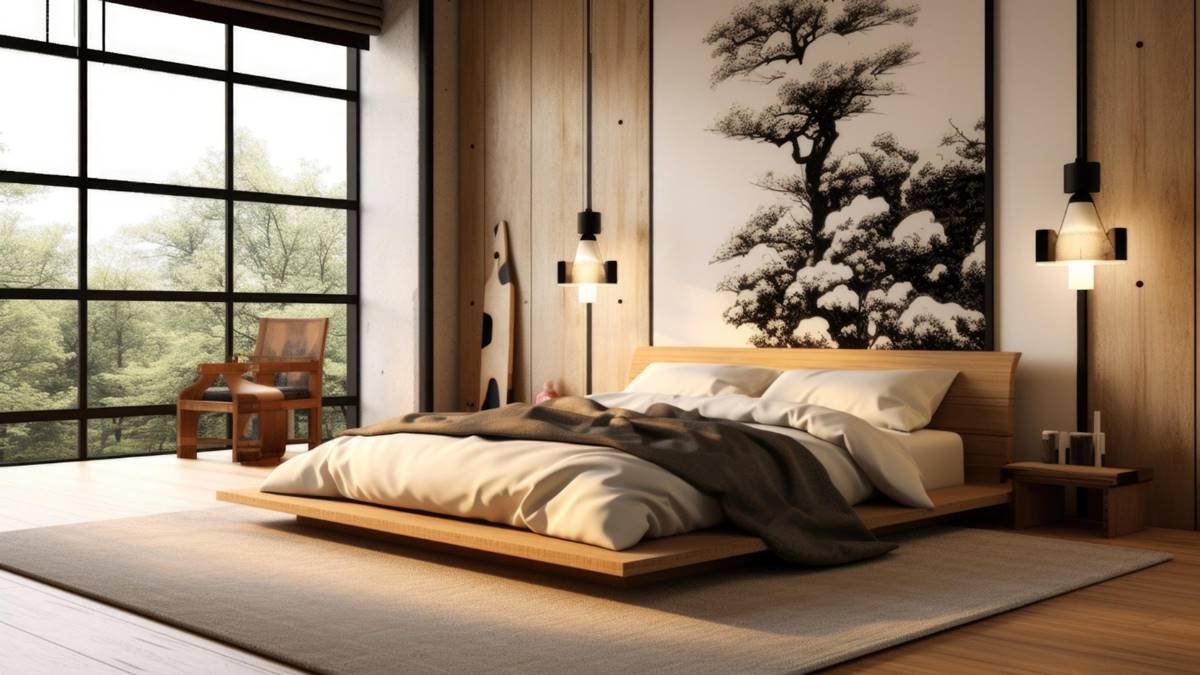The bedroom is more than just a place to sleep—it’s a sanctuary of rest, renewal, and intimacy. According to butorhonlap.hu, integrating Feng Shui principles into your bedroom design can greatly enhance your well-being, emotional balance, and quality of sleep.
Feng Shui, the ancient Chinese art of spatial harmony, emphasizes the flow of energy—known as chi—through a space. In the bedroom, where we are most vulnerable and receptive, the goal is to create a calm, grounded environment that supports rest and emotional health. Every design element, from the bed’s placement to color choices, can influence this energy flow.
One of the most important Feng Shui rules is bed positioning. Ideally, the bed should be placed diagonally across from the door, in what’s called the “command position.” This means you can see the entrance while lying down, without being directly in line with it. It fosters a sense of security and control, key components of restful sleep. The bed should also have a solid headboard and be easily accessible from both sides to symbolize balance in relationships.
Clutter is a major Feng Shui concern, especially under the bed. Energy must flow freely, so storing items underneath can disrupt sleep and increase stress. Keep the space tidy and remove electronics, work materials, or anything that symbolizes tension or activity. Instead, opt for natural elements like soft textiles, calming colors, and objects that bring you joy.
Speaking of colors, Feng Shui favors soothing earth tones and soft shades in the bedroom. Think muted blues, warm creams, soft greens, and gentle pinks. These colors help ground the space and promote relaxation. Avoid bold, fiery hues like red or intense black, as they can be overly stimulating or emotionally heavy in a resting area.
Symmetry is another key principle. Place matching nightstands or lamps on either side of the bed to promote balance, especially in a shared bedroom. Artwork and decor should reflect peaceful themes—landscapes, abstract forms, or images that evoke happiness and calm.
Mirrors can be tricky in Feng Shui. While they can expand a space visually, they also bounce energy around the room. Avoid placing mirrors directly across from the bed, as this may lead to restless energy or disturbed sleep. If mirrors are necessary, ensure they don’t reflect the bed or cover them at night.
Lighting should be soft and layered. Use adjustable lights to create a gentle atmosphere in the evening, and let in as much natural light as possible during the day. Candles, salt lamps, and warm-toned bulbs can all contribute to a serene ambiance.
Feng Shui also encourages intentionality. Every item in the bedroom should serve a purpose—whether functional, emotional, or symbolic. Remove anything broken, outdated, or associated with negative experiences. The goal is to make the room a reflection of peace, intimacy, and personal joy.
Ultimately, Feng Shui is not about rigid rules but about tuning your space to support your best life. In the bedroom, that means prioritizing rest, emotional security, and balanced energy. By making even a few thoughtful adjustments based on these principles, you can transform your bedroom into the heart of calm in your home.
Source: butorhonlap.hu – Feng Shui hálószoba: harmónia és nyugalom az otthon központjában
